Against All Odds: How Netflix Made It
Home video rentals were already a $16 billion industry when Reed Hastings and Marc Randolph decided to get involved in the summer of 1997. Hastings, who holds degrees in mathematics and computer science, had just sold a software startup he had created earlier in the decade. Randolph was a direct mail and marketing specialist that held an executive-level position at Hastings' software company.
During the acquisition process, the two commuted together from their homes in Santa Cruz. It was during these drives that the concept for Netflix blossomed.
Their million-dollar idea was to build an online video rental service in the image of Amazon, an up-and-coming e-commerce player that was in the business of selling books. Rather than VHS tapes, which were deemed too costly and fragile to store and ship, they banked on a new medium that had debuted less than a year prior called DVD.
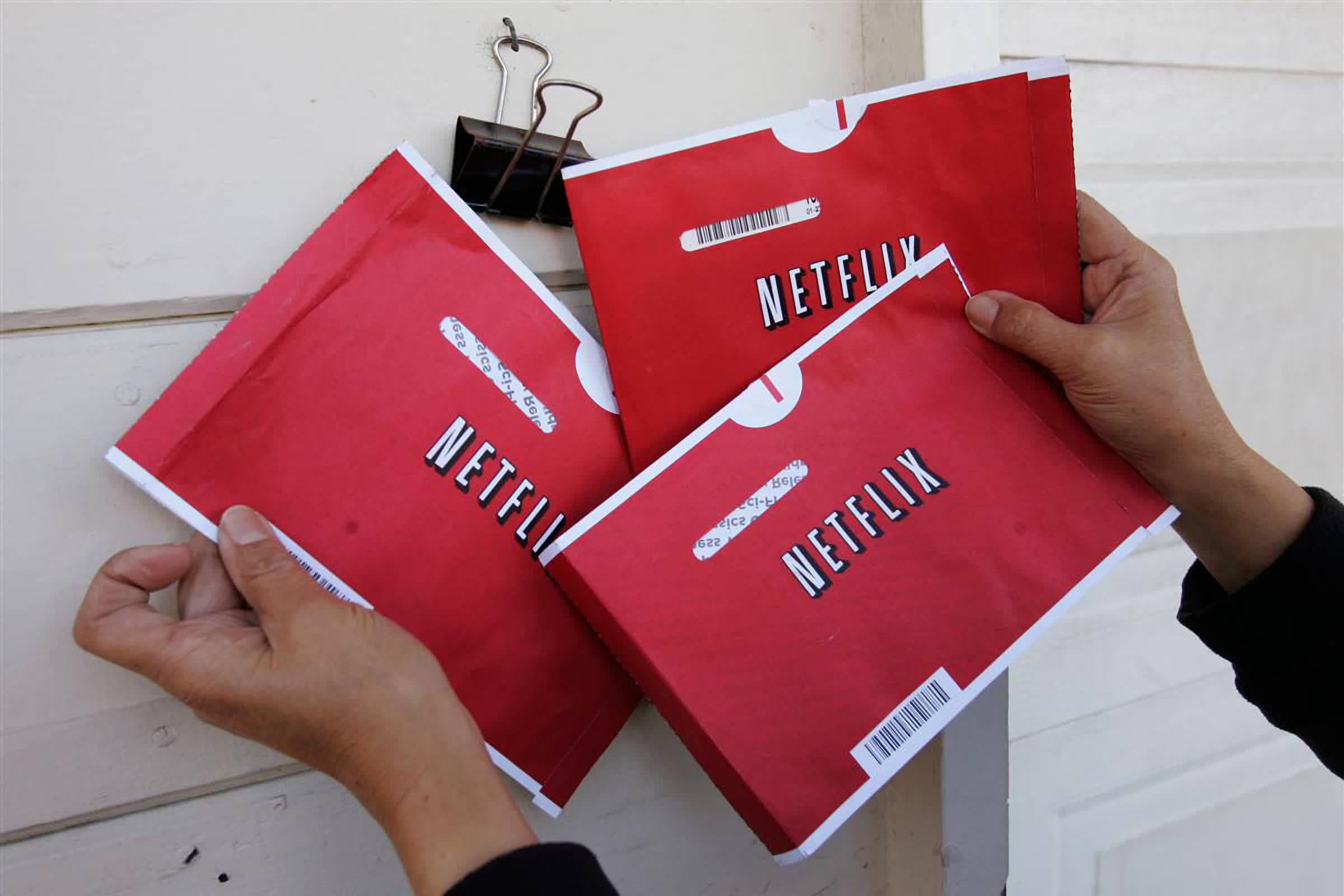
It's a no-brainer in hindsight, but at the time, launching an Internet-based company in hopes of disrupting an industry that had recently been steamrolled by what seemed like an unstoppable force – Blockbuster – was an ambitious undertaking.
Blockbuster had effectively commercialized the home video rental industry over the previous decade, putting many mom-and-pop rental shops out of business through brute force. In short, they were colossal, and independently-owned stores couldn't compete with their vast selection and ability to stock multiple copies of new releases.
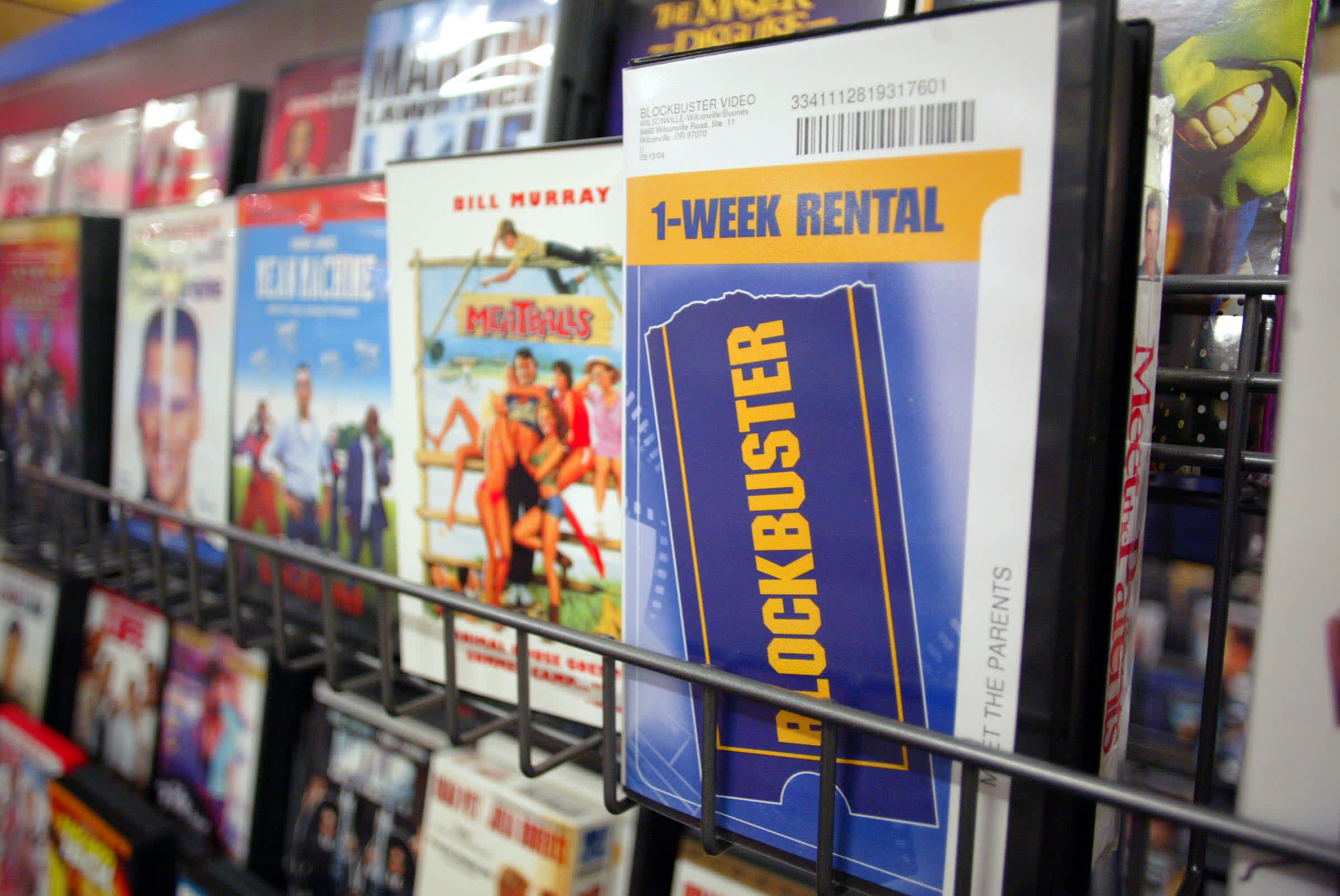
Behind the scenes, however, Blockbuster was dealing with its own issues. Executives were concerned that technological advances, like the growth of cable television and advances in video on-demand services, would negatively impact their business.
If you aren't innovating, you are bound to get left behind. Netflix was doing just that.
After launching one of the world's first online DVD rental services, the company further distanced itself from traditional rental outfits by introducing a monthly subscription model in 1999 and dropping the single-rental model altogether by the following year.
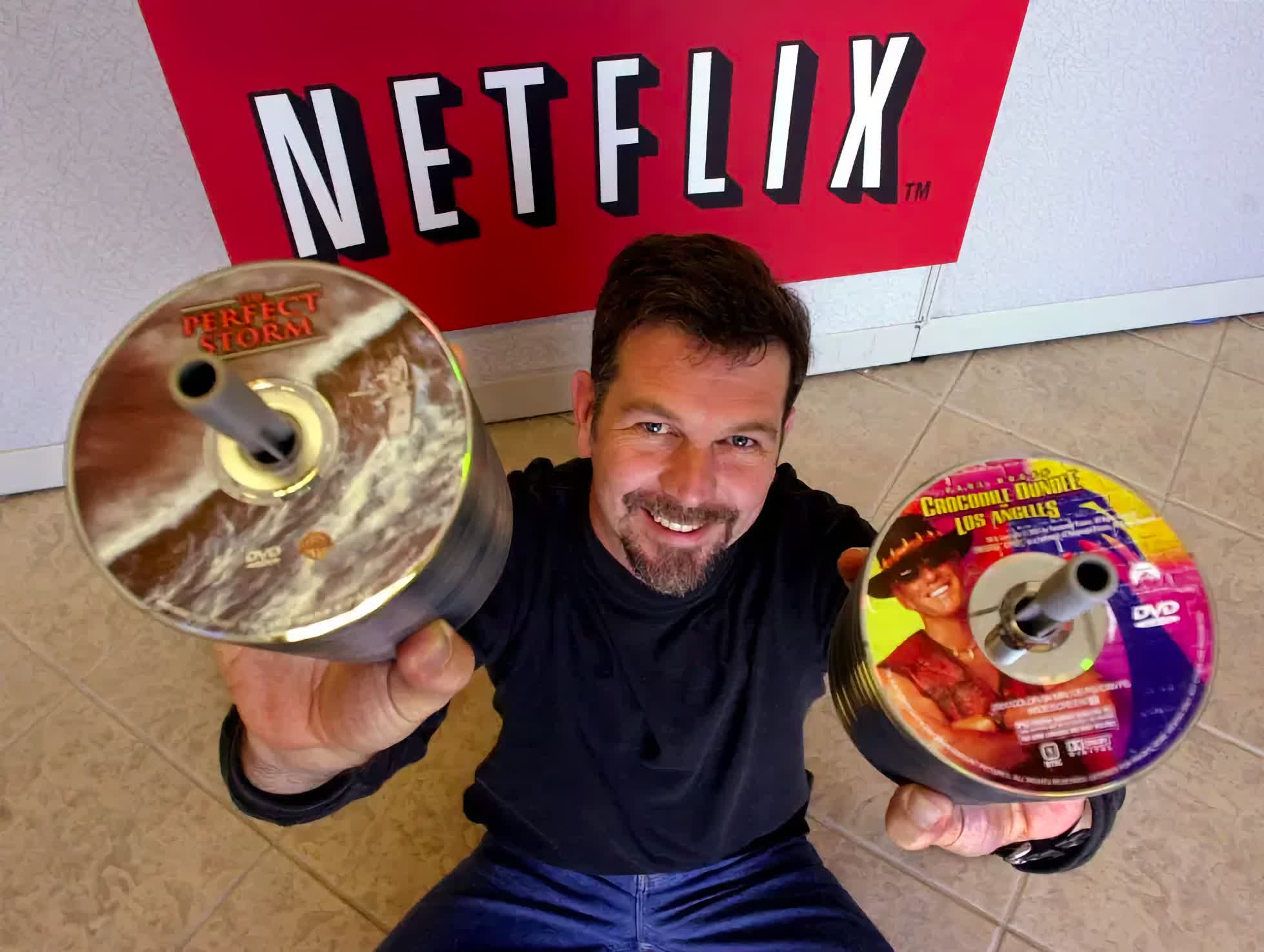
Launching a startup is no easy task, as Hastings and Randolph quickly discovered. By 2000, they had amassed some 300,000 subscribers but even still, the company was on pace to lose $57 million.
Seemingly in over their heads, the co-founders managed to arrange a meeting with Blockbuster CEO John Antioco. The pitch was straightforward: Blockbuster would buy Netflix and let their team develop and run Blockbuster's online video rental arm while Blockbuster would handle the retail stores.
The opportunity, if Blockbuster was willing, would cost them a mere $50 million. But they weren't interested in playing ball, or even entertaining a serious counter offer, and it wouldn't be the first time that Netflix narrowly avoided the chopping block.
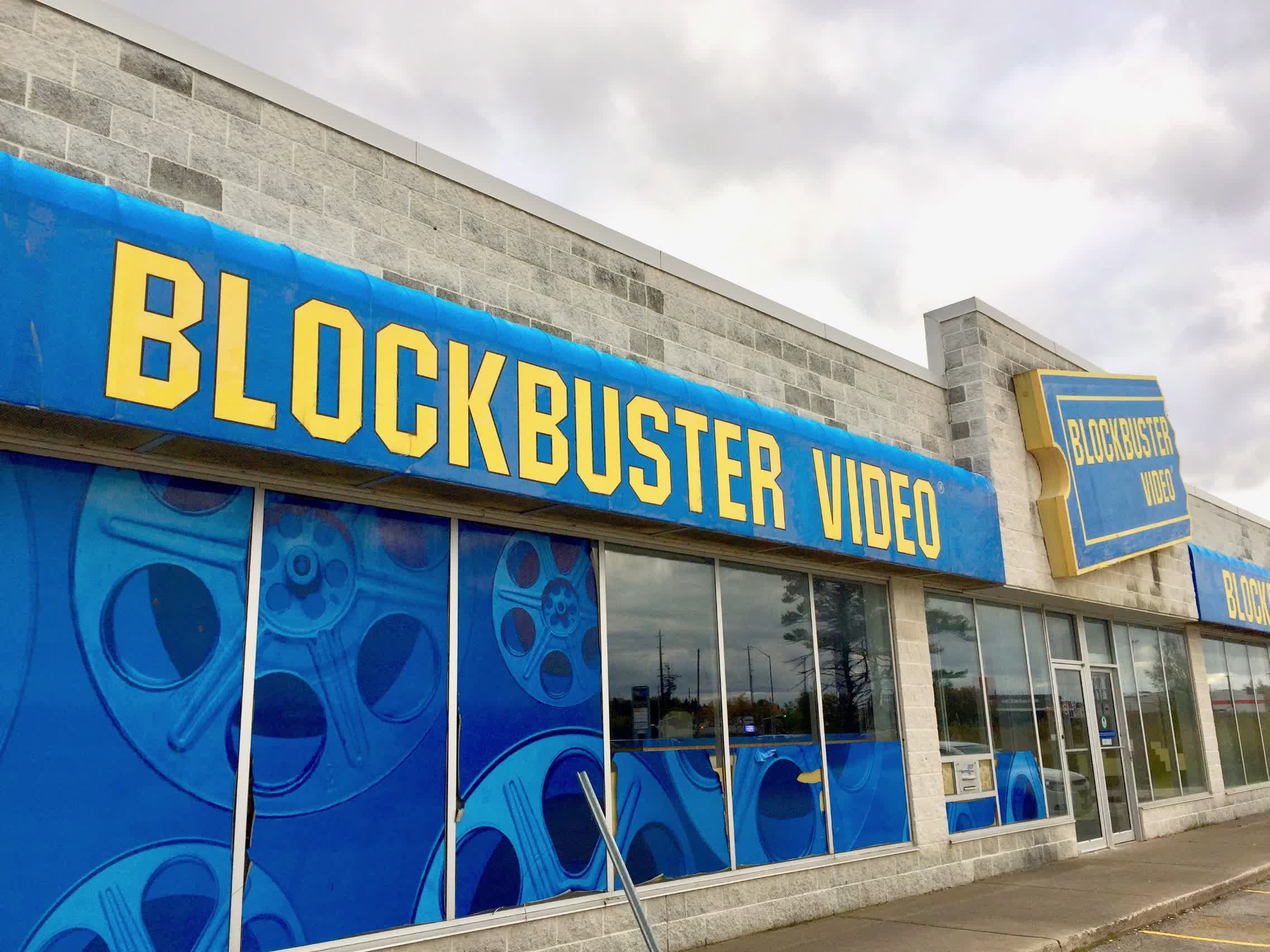
Netflix got back to work. The company continued to grow its DVD rental-by-mail business, benefiting from the falling prices of consumer DVD players. In 2002, Netflix became a publicly traded company. Two years later, co-founder Marc Randolph retired from the business.
Like Blockbuster, Netflix had been thinking a lot about how technology was inevitably going to change their business. Executives had long been interested in the idea of delivering movies over the Internet and by the mid-2000s, the technology was finally in place to make it a reality. The initial plan was to release a branded Netflix set-top box that would download movies overnight and have them ready to watch the following day.
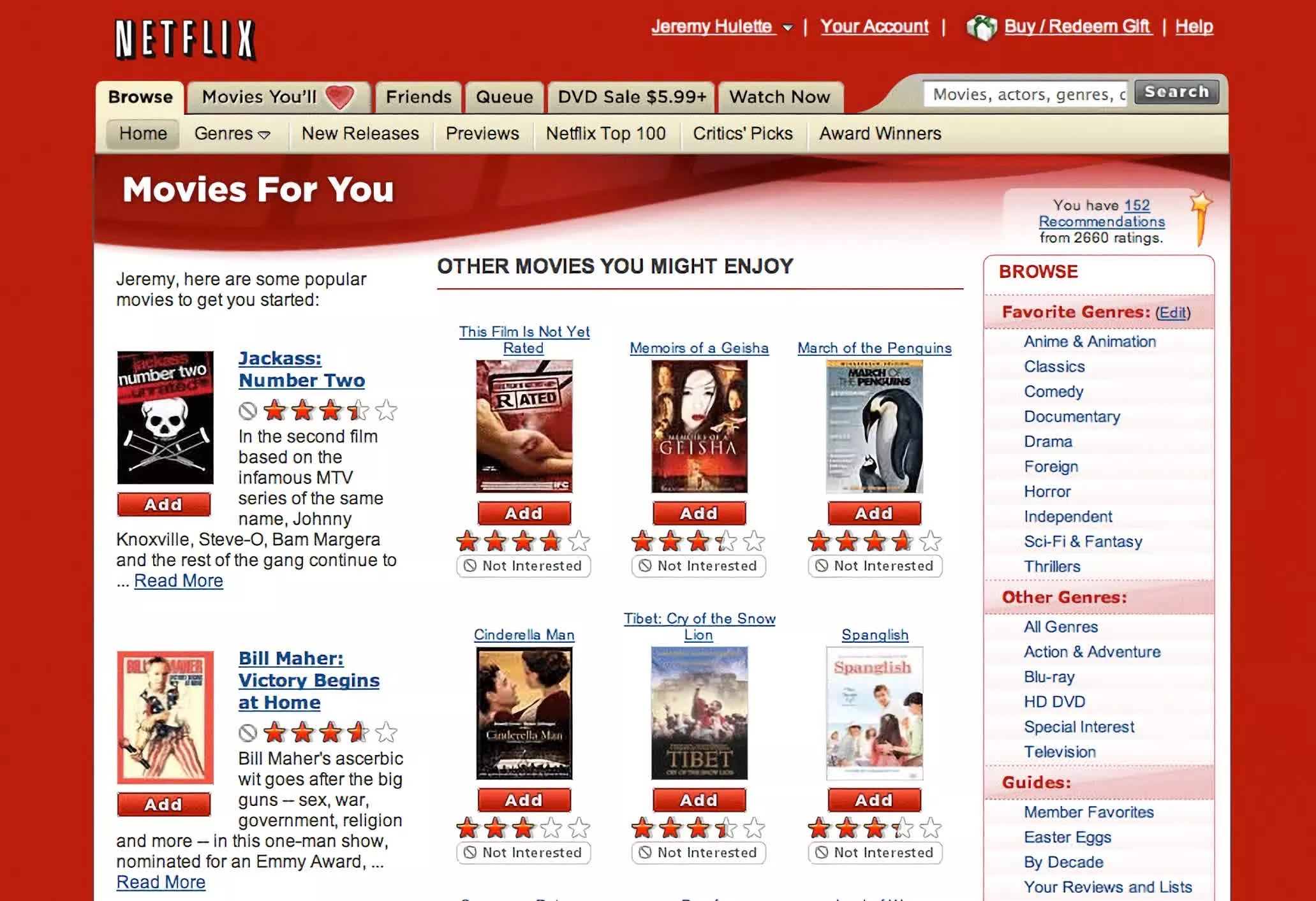
Everything was in place for the rollout, but then YouTube burst onto the scene in 2005. Netflix realized the potential of streaming video and scrapped the set-top box entirely. Two years later, they launched a streaming on-demand service with around 1,000 titles as a complementary perk for DVD-by-mail customers.
Netflix over the next several years would continue to build out its online streaming service by inking additional licensing deals with movie studios and investing heavily in its recommendation engine. Within a matter of months, the company went from being the fastest-growing customer of the US Postal Service to the largest source of web traffic in North America during peak usage hours.
It was no surprise, then, when Netflix unbundled its streaming service from the DVD-by-mail business, offering it as a standalone option for the first time in late 2010. What did catch some by surprise, however, was the unexpected price hike associated with the move. Suddenly, it'd cost 60 percent more if you were interested in both the DVD-by-mail offering and the streaming offering.
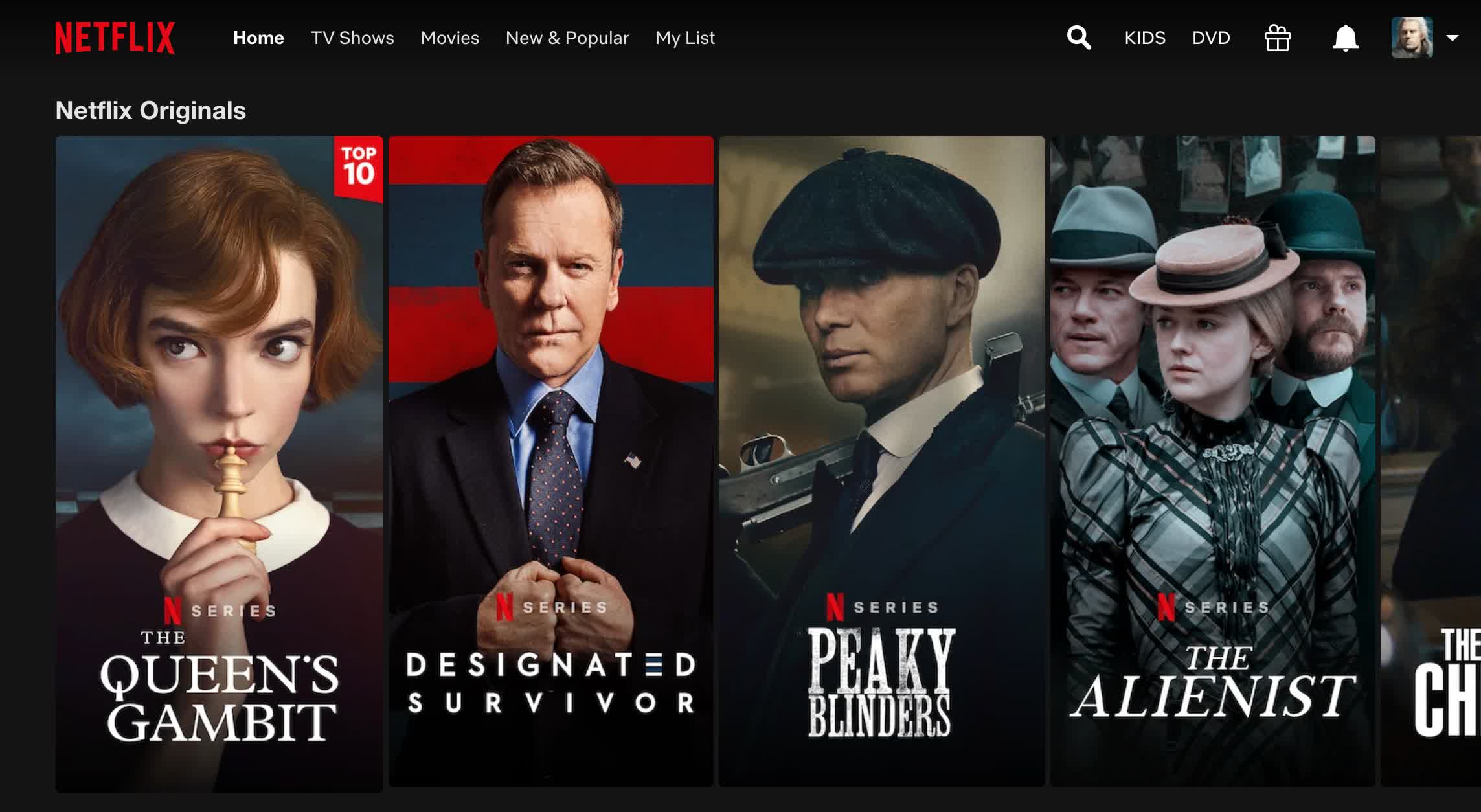
It was a huge misstep that ultimately cost the company around a million subscribers, and it wouldn't be the first flub. In September 2011, Netflix announced plans to rebrand its DVD-by-mail as an independent subsidy called Qwikster. Less than a month later, Netflix walked back the decision and elected to keep the two businesses under the same brand.
It's been mostly home runs and grand slams for Netflix ever since.
Netflix's experiment with producing original content has paid major dividends and become an industry standard and differentiator. From early hits such as House of Cards and Orange is the New Black, to instant favorites like Stranger Things, Ozark, and The Witcher. Netflix has rarely missed in this department. With shows like the CGI-based Resident Evil: Infinite Darkness in the works and the recent pickup of Cobra Kai from YouTube, Netflix's original content portfolio is looking stronger than ever and has forever changed the traditional distribution model.
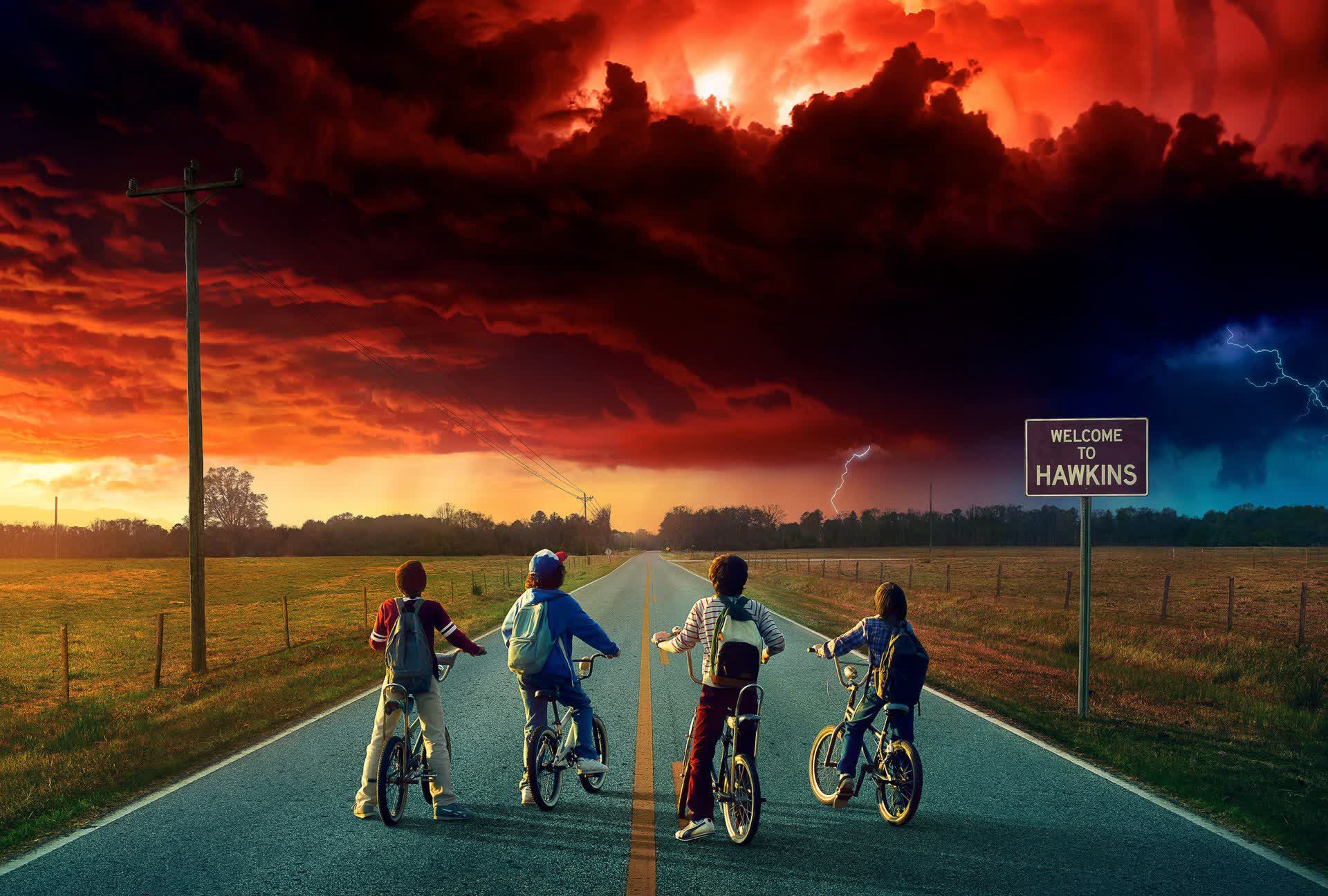
Streaming is without a doubt Netflix's bread and butter, but did you know that the company still offers DVDs by mail? Netflix brought in $212 million from its DVD arm in 2018 and shipped its five-billionth DVD in mid-2019.
What Netflix has managed to accomplish is nothing short of amazing. In less than 24 years, Netflix went from a scrappy startup to one of the world's largest media companies. As of writing, Netflix reports to have over 195 million paying subscribers around the globe and a market cap of more than $215 billion. Blockbuster, which passed on the opportunity to buy Netflix for a mere $50 million a decade earlier, filed for bankruptcy in 2010.
文章
67
浏览
6217
获赞
3222
热门推荐
Google's Pixel 4a may have been delayed yet again
Google's cheaper Pixel phone is coming a bit later than originally anticipated. According to leakerNow Google will display why it's showing you its search results
The man behind the Google Search curtain is coming out to explain a few things.On Thursday, Google eInventor of the World Wide Web is auctioning its source code as an NFT
Sir Tim Berners-Lee, credited as the inventor of the World Wide Web, is selling the source code forBill Gates was not expecting all the COVID
After warning about the dangers of a pandemic for years, Bill Gates looks like the most prescient maReddit recruits black tech entrepreneur to join board
Reddit is honoring Alexis Ohanian’s request to fill his board seat with a black candidate by nDonald Trump tweets that he and Melania have tested positive for COVID
Hours after senior White House adviser Hope Hicks was confirmed to have tested positive for coronaviTwitter permanently suspends pro
It's been nine months since President Joe Biden won the 2020 U.S. presidential election, but the acrAOC raised $200,000 for charity on her 'Among Us' Twitch stream Friday
New York Rep. Alexandria Ocasio-Cortez is now a pro (or close to it) at Twitch and the popular gameDyson's V11 Torque Drive is 20 percent more powerful than Cyclone V10
The future of vacuuming is cordless.A year after halting all new designs of its wired stand-up vacuuFacebook gets off the hook yet again in FTC antitrust case
The great Facebook breakup, it seems, is not to be. At least not yet. It was only in late December tTwitter's giving away NFTs for free (it's hard to put a price on worthless)
Twitter's making it rain NFTs.On Wednesday, the social media giant announced its intention to give aOne single CDN user took down the internet this week
On the morning of June 8, some of the biggest websites on the internet simultaneously went offline.OChris Evans passionately defends Cool Ranch Doritos amidst heated chip debate
Chris Evans loves Cool Ranch Doritos, and he's not about to apologize for his good taste.After comedMaine voters double down on facial recognition ban in win for privacy
Residents of Portland, Maine, can now officially sue the bastards. In a robust show of doubling downChevrolet recalls all Bolt EVs and EUVs
Chevrolet's battery fire recall for its Bolt EVs just got so much worse.The automaker announced Frid
 科技创新!
科技创新!